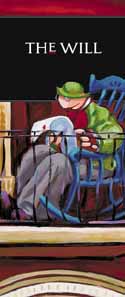      |
  |
||
|
< Back
Notarial wills are not subject to probate because the law recognizes notaries as public officers, and allows them to confer authenticity on their wills. SEVERAL GOOD REASONS FOR CHOOSING A NOTARIAL WILL A will is an extremely important legal document; the settlement of your succession is based on it. It is therefore essential that the will be well drafted, complete, and above all, free of ambiguity. When you have recourse to the services of a notary, a lawyer with expertise in the planning of successions and drafting of legal documents, you can be sure that there will be no problems in the interpretation of your will. Your notary knows how important it is to choose the right words and he will formulate your last wishes in legal terms according to your instructions. He will also help you remember everything that should be included to make the settlement of your succession an easy task. Another advantage of a notarial will is that the notary will keep the original in a safe place, where it cannot be lost or destroyed. The notary also has your document entered in the Register of Wills of the Chambre des notaires. The will itself is not filed there, only the fact of its existence is recorded, thus maintaining confidentiality while making it easy to locate after your death. THE REGISTER OF WILLS, AN EXCEPTIONAL SYSTEM The notaries of Quebec, guardians from the beginning of the most intimate secrets of Quebecers, created in 1961 a registration system to ensure better protection for your wills. This system, known as the Register of Wills of the Chambre des notaires, now contains more than 6,000,000 will inscriptions. A SYSTEM WITH MANY USES As a result of changes made to the Register in 1978, wills other than notarial wills may now benefit from the advantages of the Register Thus, a holograph will or a will signed in the presence of witnesses may be entered in the Register in the same manner as a notarial will. Registration must, however, be done through a notary of your choice. A SYSTEM THAT HAS ADVANTAGES Conceived and created to guarantee that your last wishes are respected, the Register has definite advantages:
A SYSTEM THAT IS READILY ACCESSIBLE A system that is readily accessible When you choose to make a notarial will, you avoid many complications. The notary, in addition to advising and guiding you, has the will entered in the Register. If you nevertheless decide to draw up your will in holograph form or in the presence of witnesses, it is recommended that you forward it to your notary who, after depositing it in his records to ensure its conservation, will enter it in the Register. To ascertain the existence of a will following death, you should consult your notary or go directly to the Register of Wills of the Chambre des notaires with proof of death.
Chambre des notaires du Québec Tour de la Bourse 800, Place-Victoria Bureau 700, P.O. Box 162 Montréal (Québec) H4Z IL8 Consult your notary: he leaves nothing to chance. | ||
| |
